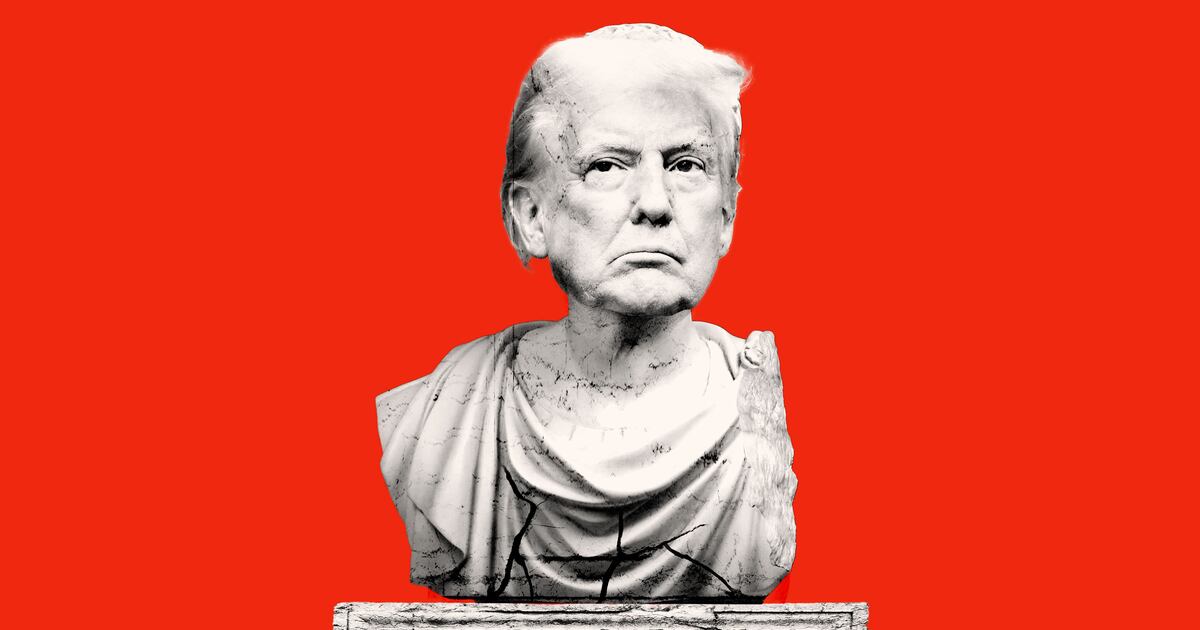Earlier this month, Sacha Baron Cohen did something risky, questionable, and with few precedents in his wildly outré career—which is saying a lot considering the movie comedian has carved a living out of scandalizing America with his ambush docu-comedies and the cartoonish antics of his scabrous alter egos.
This is the actor, after all, who dressed down as the hapless Kazakh journalist Borat to coax drunken frat boys into admitting wishes of owning slaves, who bungee-jumped ass-first onto rapper Eminem’s face (as the swishy Austrian fashionista Bruno) and dumped an urn of Korean dictator Kim Jong-Il’s supposed ashes on Ryan Seacrest (as the Dictator—more on that in a minute).
But earlier this month, Baron Cohen did the nearly unthinkable. He was interviewed on The Howard Stern Show as himself, not deeply immersed in character as Baron Cohen has done for every other media engagement in support of his new comedy The Dictator, which arrives in theaters Wednesday.
Out of respect for Stern, who Baron Cohen says inspired him, the comedian spoke straightforwardly and un-ironically in his native British accent, absent the kinky weird beard associated with his Saddam Hussein–esque character, Admiral General Shabazz Aladeen, and spouting none of the faux despot’s characteristically sexist and racist gibberish. “I’ve never really done interviews as myself,” Cohen said. “This is like the third time in my life I’ve done an interview out of character.”
Paramount, the studio releasing The Dictator, has taken this gambit a step further, predicating the brunt of its publicity efforts on the accepted wisdom that Aladeen is a real person with a functioning Twitter account (@RepublicWadiya) and that Wadiya is an actual North African nation with a website touting the dictator’s friendship with other iron-fisted rulers (hence a Photoshopped picture of Aladeen with the late Libyan Col. Muammar Gaddafi and Venezuelan President Hugo Chavez at the Coachella Valley Music and Arts Festival). There’s even a Dictator College Bus Tour educating North American students on “key issues such as the woman’s place in this man’s world, how to appropriately honor The Dictator, and why the West needs his guidance.”
But the Stern appearance managed to illuminate a core truth about the wall-to-wall Baron Cohen–as–Aladeen publicity blitz: it doesn’t always have to be this way. While Baron Cohen certainly prefers to let his comic creations do all the talking, he is—when he wants to be—willing and capable of dropping the shtick.

It raises the question: will Sacha Baron Cohen’s insistence on staying in character help or ultimately hurt The Dictator’s commercial prospects?
In Hollywood, the reaction leading up the movie’s release has been mixed.
“Anything to help break through the clutter,” says a top talent agent who represents several A-list film comedians, although not Baron Cohen. “It’s original. It’s memorable. And everybody else is doing the talk-show circuit and the interview circuit the same way. So he’s got his own lane.”
But a studio marketing veteran (who requested anonymity out of concern for jeopardizing his longstanding relationships in Hollywood) says Baron Cohen may have gone to the well once too often with his in-character publicity–as–performance art. “Clearly, a lot of people find him hilarious—he’s one of the most original comedians working,” the source says. “But there’s a sense out there of, ‘Really? This again?’ Like, Couldn’t you stop making fun of everything and just talk about your movie for a change?”
It all begins with the previous film hits in which Baron Cohen starred and that he co-wrote: Borat: Cultural Learnings of America for Make Benefit Glorious Nation of Kazakhstan and Bruno—both of them bruising mockumentaries that involved duping unsuspecting interview subjects into dropping their guard to set in motion train wrecks of unintended (and decidedly un-PC) humor.
In those films, as well as his scripted comedy flop, Ali G in Da House, Baron Cohen developed an immersive comic persona and—taking Peter Sellers’s “the man you play begins to exist” ethos apparently to heart—stayed consummately in character for the duration of shooting and for all subsequent promotions.
This trope is by now so familiar, there has been blowback in the comedian’s homeland with such U.K. programs as The Graham Norton Show, Newsnight, The Andrew Marr Show, and The One Show declining his request to appear in General Aladeen regalia. (Baron Cohen responded to them in character, naturally, remarking: “While I am a huge admirer of state-sponsored censorship, the BBC banning me from their meager channels is an outrage. Why are they victimizing little old me?”)
As well, in February the Oscars initially banned the comedian from appearing as The Dictator on the broadcast before eventually allowing him to turn up as Aladeen on the red carpet (resulting in the Seacrest incident). But for every outlet to enforce the “interview no characters” clause, it seems that dozens of other outlets around the world are all too happy to comply.
As Aladeen, Baron Cohen appeared on NBC’s The Today Show, where he threatened Matt Lauer’s family and referred to co-host Ann Curry as Lauer’s “cleaning lady.” And earlier this month on Australia’s Wake Up With TODAY! program, the comedian (in his best Wadiyan accent) remarked that Prime Minister Julia Gillard “should have a sex change and become a woman” if she wanted to be more popular with constituents.
Until now, Baron Cohen’s filmic breakthroughs have largely relied on the guerrilla comedy he developed for his early '00s U.K. TV series Da Ali G Show: Borat, Bruno, and the titular suburban gangsta Ali G. But The Dictator represents Baron Cohen’s attempt to star in a more conventionally scripted narrative. In the $65 million film—which reteams Baron Cohen with director Larry Charles for a third time (after Borat and Bruno)—sociopath despot Aladeen is summoned from his fiefdom to the United States in the hopes he’ll be persuaded to embrace democracy. Once there, however, the “mad dog of Wadiya” is tortured, stripped of his signature weird beard, and replaced by an impostor (also portrayed by Baron Cohen). Then Aladeen is set loose on the mean streets of New York, where he takes up with a vegan feminist tree-hugger (Anna Faris) and...hilarity ensues.
The Dictator will bring his promo tour Wednesday to the Cannes Film Festival, where he will hold a press conference for the movie—you guessed it—in character.
Even though prerelease tracking reports are “soft,” with moviegoers older than 30 seemingly skittish about what boundaries of taste the comedian will assault in the film, according to one high-powered Hollywood publicist working for a top firm, Baron Cohen’s insistence on working this way is still a shrewd move. “He’s such an elusive person, you can forget a real person exists and fall deeper into the character,” the source says. “That allows him to build up the character for months before the movie is released to where you feel like you know him even before you see it. Nobody else could have pulled this off.”
At the end of the Stern interview, Baron Cohen admitted having fun emerging from beneath the guise of one of his comic creations from time to time. But he cautioned comedy lovers not to get too used to the real him: “I enjoyed it. I never do it. Maybe that’ll be it. It will be an exclusive with The Howard Stern Show.”






